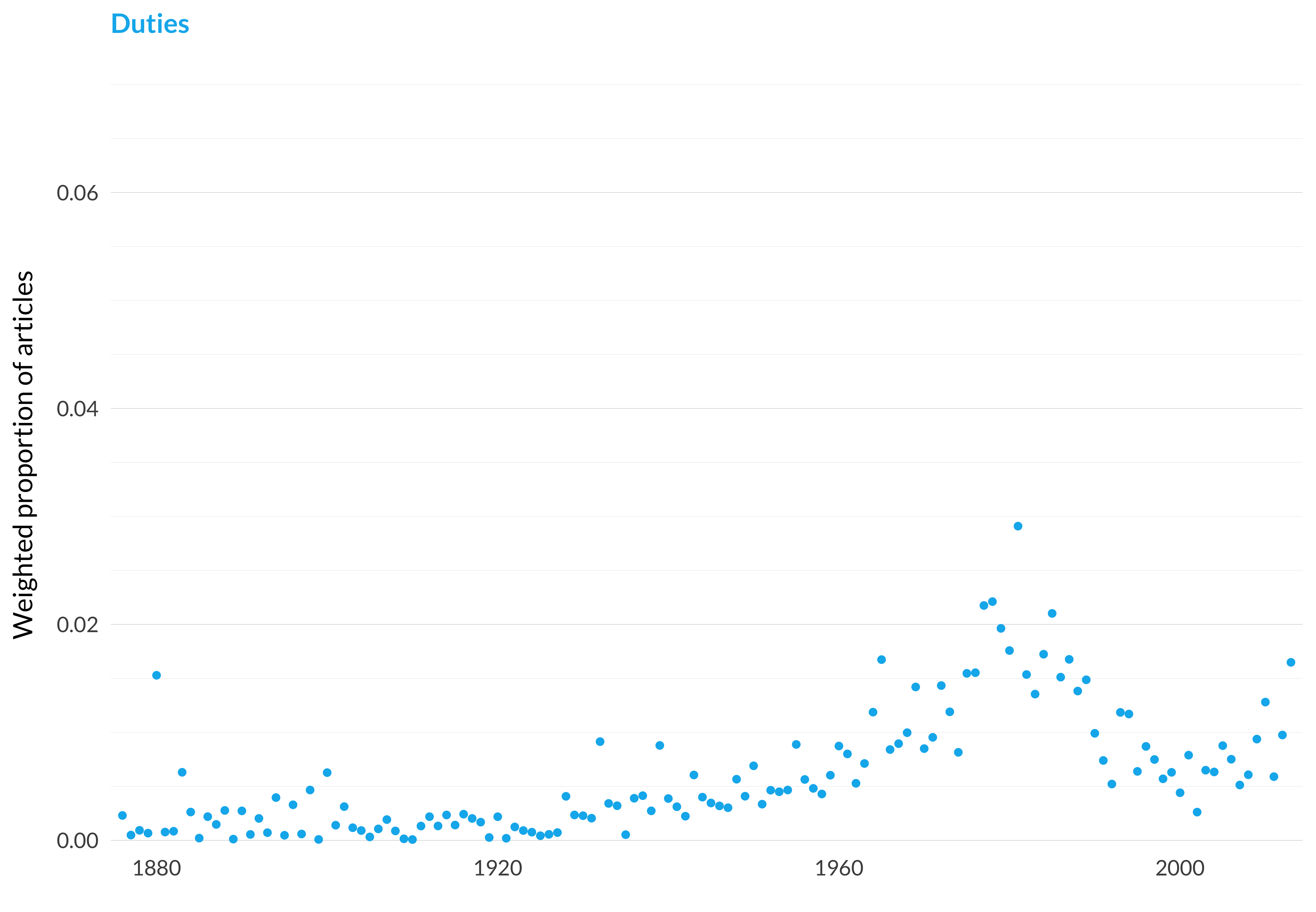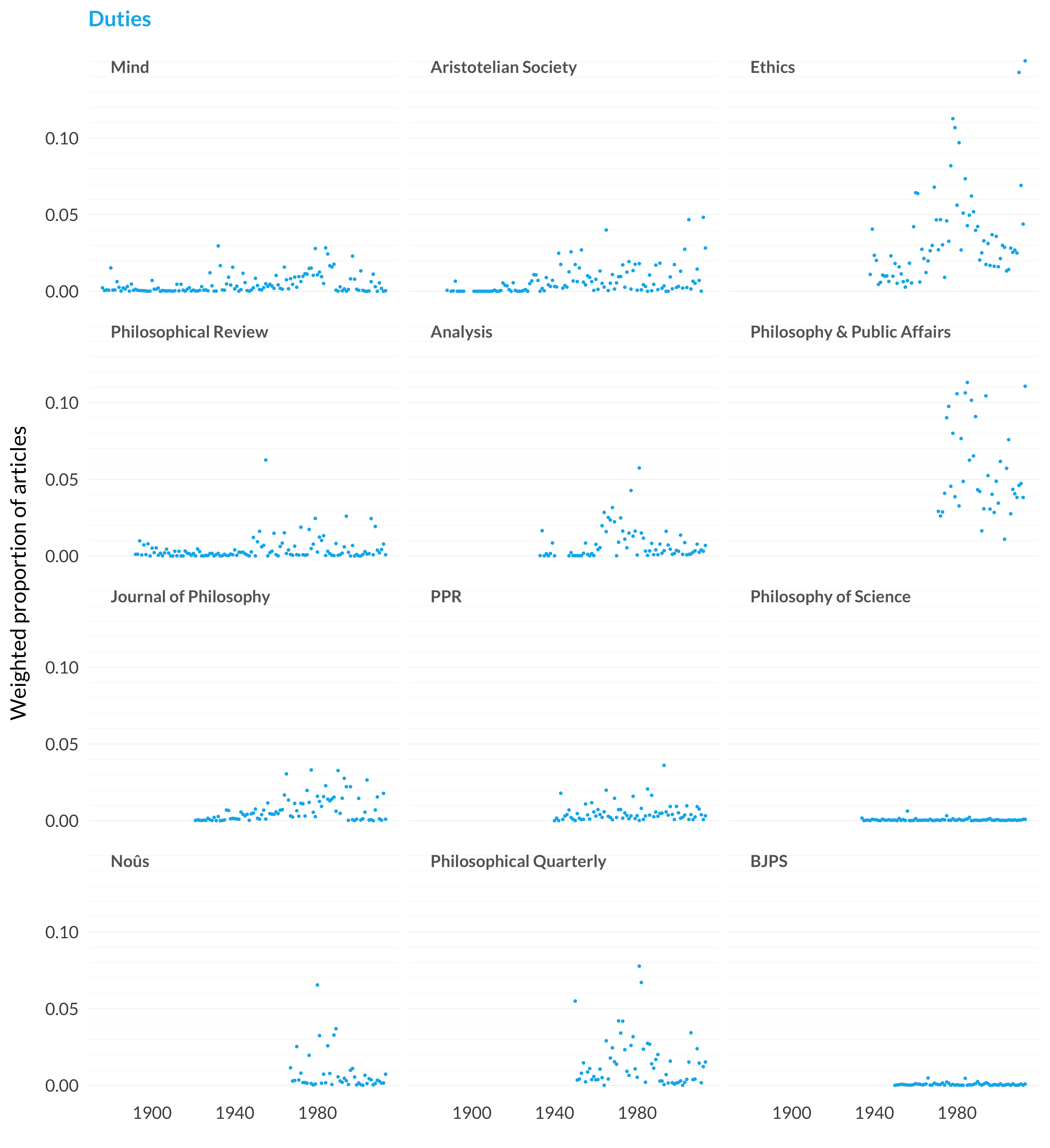2.53 Duties
Category: Ethics
Keywords: duties, obligations, obligation, duty, rights, prima, facie, consent, dignity, ross, right, promises, institution, binding, violate
Number of Articles: 300
Percentage of Total: 0.9%
Rank: 52nd
Weighted Number of Articles: 282.7
Percentage of Total: 0.9%
Rank: 53rd
Mean Publication Year: 1980.4
Weighted Mean Publication Year: 1978.8
Median Publication Year: 1981
Modal Publication Year: 1981
Topic with Most Overlap: Ordinary Language (0.0536)
Topic this Overlaps Most With: Promises and Imperatives (0.0401)
Topic with Least Overlap: Quantum Physics (0.00016)
Topic this Overlaps Least With: Chemistry (0.00018)

Figure 2.125: Duties.

Figure 2.126: Duties articles in each journal.
Comments
I needed to take the model up to ninety topics to make the needed distinctions in a bunch of subdisciplines. But I fear that the model would be more enlightening with respect to ethics with a smaller number of topics. Some of the ethics topics end up being distinguished by which near synonym the author decided to use. And this feels like one of them.
The formula I used for the “characteristic articles” weighs length as well as probability. The list of articles that have the highest probability of being in this topic make it look like it concerns very in-house debates.
- Hillel Steiner, 1981, “Nozick on Hart on the Right to Enforce,” Analysis 41:50–0.
- Patrick Wilson, 1981, “Steiner on Nozick on the Right to Enforce,” Analysis 41:219–21.
- Joseph Ellin, 1965, “Wasserstrom and Feinberg on Human Rights,” Journal of Philosophy 62:101–2.
- Marvin Schiller, 1967, “Complaints About ‘Entitled to Complain’,” Analysis 28:27–9.
- James P. Sterba, 1979, “The Moral Presuppositions of Contractual Rights,” Ethics 89:298–300.
- Hillel Steiner, 1982, “Vanishing Powers: A Reply to Miller and Wilson,” Analysis 42:97–8.
- Phillip Montague, 1984, “Rights and Duties of Compensation,” Philosophy and Public Affairs 13:79–88.
- Marcus G. Singer, 1965, “Lamont on Rights and Duties,” Philosophy and Phenomenological Research 26:112–6.
- Henry Jack, 1966, “More on Prima Facie Duties,” Journal of Philosophy 63:521–4.
- Daniel Kading, 1960, “Are There Really”No Duties to Oneself”?,” Ethics 70:155–7.
And this makes sense. In terms of subject matter, this topic overlaps considerably with other topics. What distinguishes it is not subject matter, but word choice. And discussion notes tend to mirror the language of the articles they are discussing.
We get a better sense of what’s happening by looking not here but at the larger ethics category that I’ll discuss in later chapters.